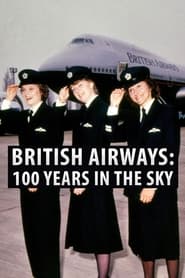Popular Talk TV Series on Amazon Prime Video - Page 205
-
101 Ways to Leave a Gameshow
2010
101 Ways to Leave a Gameshow is a British game show produced by Initial for the BBC, hosted by Steve Jones and Nemone. The show sees eight contestants compete to be the winner of a £10,000 prize by picking the right answers to general knowledge questions. Competitors who pick wrong answers are eliminated from the game in a variety of different ways, usually involving a large drop into a pool of water. The show made its debut on BBC One on 10 July 2010 and ended on 28 August 2010. An American version, hosted by Jeff Sutphen, premiered on 21 June 2011. -
Why I Ran
2008
Why I Ran
2008
-
Lemur Kingdom
2008
Lemur Kingdom
2008
-
Divine Restoration
0000
Divine Restoration
0000
Divine Restoration, or DR, is a religious renovation television series. Created by Canada's VisionTV, instead of renovating homes like most shows, it renovates houses of worship. Hosted by Jim Codrington and Catherine Burdon, the series actually taps into the talents of the congregation. Instead of hiring electricians, plumbers, carpenters, architects, etc., DR finds people of relevant professions to donate their time to lead the rest of the parish's members in the work. The series aims to not discriminate against particular faiths, representing as many denominations as possible. They have renovated in locations as distant from each other as Toronto, Halifax, Winnipeg, Ottawa, Montreal, New York, Montgomery, Orlando, Atlanta, New Orleans, Chicago and Milwaukee. -
Linlang
0000
Linlang
0000
Linlang is a Philippine television drama and the sixth installment of Now and Forever series. Linlang is a tale of betrayal, heartache and vengeance. -
The Re-Inventors
0000
The Re-Inventors
0000
Follow Matt Hunter and Jeremy MacPherson as they dig up original patent designs from history’s lost inventions and build them, test them, and try to make them work. From a snow annihilator from the 1930s to a Chinese dragon rocket over 600 years old to a solar powered crematorium, Matt and Jeremy take us through the strange and entertaining world of invention. -
Hawaii Melting Pot: A Guided Tour
2025
"Melting Pot" is a quirky travel show hosted by Hawaii’s top stand-up comedian and local boy, Kenny Kusaka, that explores the unique food, culture, and history that make Hawaii one of the most coveted destinations on Earth. -
Concorde - Anatomy of a Disaster
2003
Interviews with pilots and crew open up fresh investigation into the causes of the Concorde plane crash on 25th July 2000, which killed 113 people. -
The Secret History of My Family
2016
The Secret History of My Family' is a documentary created from a two-year research project, exploring social mobility over a 200-year period. The miniseries explores Britain's history using particular case studies, tracing family ancestry throughout the years and examining whether social ranks have changed within them. During the Victorian era, working-class citizens often went unrecorded in official documents, however dark times brought upper-class missionaries to their aid. With the written accounts of these upper-class visitors, the BBC Documentaries team have been able to trace down descendants to British families today. Over four episodes, different families discuss what they have discovered about their lineage and social backgrounds. -
Tales From the Stranger Side
2021
In this series of chilling stories with thrilling twists, bizarre events befall characters from a beauty-obsessed woman to a guy with a demon friend -
The Time Of Your Life
0000
A documentary series using archive footage to look at the events of past years, including the music, news, movies and personalities that made each year unique. -
Walking Britain's Lost Battlefields with Rob Bell
2020
The engineer and television presenter brings to life the interesting stories of six important battles that shaped British history. -
Route 66
2012
Route 66
2012
-
RAF: Royal Air Force Collection
2006
This season of the RAF Collection covers the RAF's early jets, the jets used in the Cold War, forgotten bombers, and seaplanes and flying boats. -
British Airways: 100 Years in the Sky
2018
Archive documentary about the history of British Airways. -
Break Out
2019
 Netflix
Netflix
 Amazon Prime Video
Amazon Prime Video
 Apple iTunes
Apple iTunes
 Apple TV Plus
Apple TV Plus
 Disney Plus
Disney Plus
 Google Play Movies
Google Play Movies
 Paramount Plus
Paramount Plus
 Hulu
Hulu
 HBO Max
HBO Max
 YouTube
YouTube
 fuboTV
fuboTV
 Peacock
Peacock
 Peacock Premium
Peacock Premium
 Amazon Video
Amazon Video
 The Roku Channel
The Roku Channel
 AMC+
AMC+
 Kocowa
Kocowa
 Hoopla
Hoopla
 The CW
The CW
 Vudu
Vudu
 Starz
Starz
 Showtime
Showtime
 PBS
PBS
 Pantaflix
Pantaflix
 FXNow
FXNow
 Tubi TV
Tubi TV
 Kanopy
Kanopy
 Comedy Central
Comedy Central
 Crunchyroll
Crunchyroll
 Microsoft Store
Microsoft Store
 Redbox
Redbox
 Sun Nxt
Sun Nxt
 ABC
ABC
 DIRECTV
DIRECTV
 Crackle
Crackle
 Fandor
Fandor
 Plex
Plex








